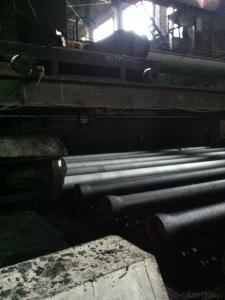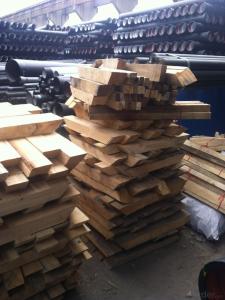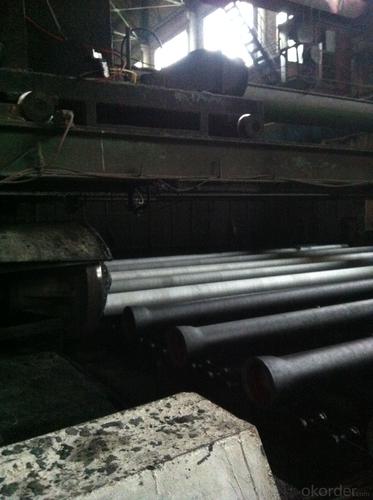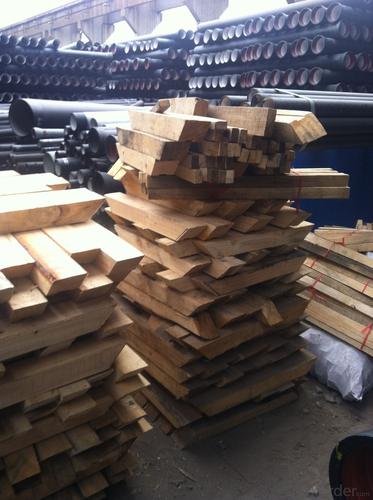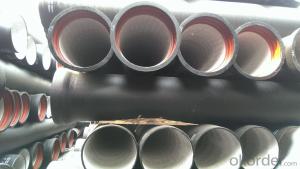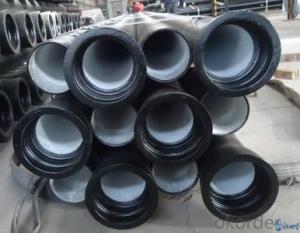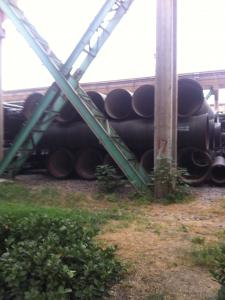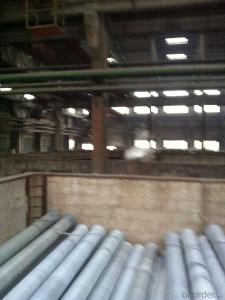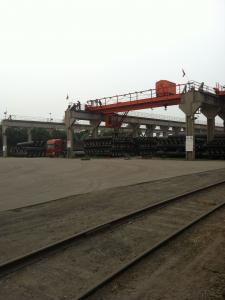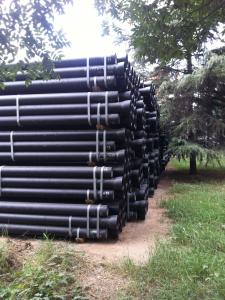DUCTILE IRON PIPES & FITTINGS K9 CLASS DN125
- Loading Port:
- Tianjin
- Payment Terms:
- TT OR LC
- Min Order Qty:
- 20 pc
- Supply Capability:
- 3000 pc/month
OKorder Service Pledge
OKorder Financial Service
You Might Also Like
Specif
· Material : Ductile Cast Iron
· Size Range : DN 80mm to DN 2000mm
· Unit Effective Length : 6m or 5.7m
· Manufacture Standard: ISO 2531:1998/ EN 545:2006/EN 598:2007
· Annual capacity : 200,000 tons
· Coating Exterior: Zinc 130g/m2 according to ISO 8179-1 and bitumen coating 70 microns.
· Cement Interior: Portland Cement/ High Alumina Cement/ Sulphate Resisting Cement Lining according to ISO 4179
· Special requirements on external coating and internal lining can be applied
· We also provide accessories such as SBR/EPDM rubber gaskets, lubricant paste, pipe caps, PE sleeves, etc.
Additional Parts:
Each pipe is strictly inspected according to related standard to ensure permanently high performance.
Easy Installation at site and service free for life
Long Service Lifespan
Quotation will arrive you within 24hours once we get your inquiry.
We guarantee offering you a competitive price.
A copy of original inspection reports of pipes will be offered after shipment.
Photos of loading process will be sent to the customer after shipment effect.
We will follow-up the delivery progress after shipment effect and update to the customer on weekly basis.
- Q: Can ductile iron pipes be used for water tunnel crossings?
- Yes, ductile iron pipes can be used for water tunnel crossings. Ductile iron is a strong and durable material that can withstand the pressure and load requirements of water tunnel crossings. Its corrosion resistance and flexibility make it suitable for underground installations, ensuring the safe and efficient transport of water.
- Q: How do ductile iron pipes handle thermal expansion and contraction?
- Ductile iron pipes are known for their excellent ability to handle thermal expansion and contraction. This is mainly due to their unique composition and design which allows them to withstand changes in temperature without experiencing significant damage or deformation. Thermal expansion occurs when a material expands due to an increase in temperature, while thermal contraction refers to the contraction that occurs when a material cools down. Ductile iron pipes can effectively accommodate these changes in temperature by utilizing their inherent flexibility and strength. One of the key factors that enable ductile iron pipes to handle thermal expansion and contraction is their high ductility, which refers to their ability to deform without breaking. This ductility allows the pipes to absorb the expansion and contraction forces without cracking or rupturing. Moreover, the composition of ductile iron pipes includes graphite nodules, which act as microcracks that can absorb stress and prevent the material from fracturing. This unique microstructure enhances the pipes' resistance to thermal expansion and contraction. In addition, ductile iron pipes are often designed with joints that allow for limited movement. These joints, such as mechanical joints or push-on joints, can accommodate the expansion and contraction of the pipes by providing a certain degree of flexibility. This helps to prevent the pipes from becoming overstressed or damaged. Overall, ductile iron pipes are specifically engineered to handle thermal expansion and contraction effectively. Their high ductility, unique microstructure, and joint design make them a durable and reliable choice for applications where temperature variations are expected.
- Q: The benefits of ductile iron castings
- Nodular cast iron has developed rapidly to be second only to grey cast iron and widely used as cast iron material. The so-called "iron instead of steel", mainly refers to ductile iron
- Q: Can ductile iron pipes be used in areas with high levels of industrial effluents?
- Yes, ductile iron pipes can be used in areas with high levels of industrial effluents. Ductile iron is highly resistant to corrosion, making it suitable for handling various industrial waste streams and chemicals commonly found in effluents. Its durability and strength make it an ideal choice for such environments, ensuring long-term reliability and performance.
- Q: Can ductile iron pipes be used for wastewater pumping stations?
- Yes, ductile iron pipes can be used for wastewater pumping stations. Ductile iron pipes have excellent strength and durability, making them suitable for transporting wastewater and handling the high pressures and corrosive nature of the sewage. Additionally, ductile iron pipes have a smooth interior surface, which prevents clogs and allows for efficient flow of wastewater. These pipes are also resistant to damage from external factors such as soil movement or heavy traffic, making them a reliable choice for wastewater pumping stations.
- Q: Can cast iron pipes not be used for domestic water supply and drainage?
- Can be used for life drainage, I last year to do the public construction, 24 layers of life and drainage on the cast iron pipe.
- Q: Can the sealing ring of ductile iron pipe be reused?
- It is better not to have used things, easy aging, sealed, the best to use new
- Q: Which direction should the spigot of the K9 ductile iron pipe be installed?
- Compared with the PE pipe, from the installation time, ductile pipe PE pipe installation is simple and rapid, and after the installation of internal and external pressure bearing better tightness and corrosion resistance; from the point of view, ductile pipe sealing better after installation, but also can improve the corrosion resistance of corrosion protection through a variety of means; from the hydraulic performance, because ductile pipe specifications generally refers to the inner diameter of PE pipe diameter specifications generally refers to the same specifications, because under the condition of ductile pipe can achieve greater runoff; from the installation and maintenance cost, ductile pipe have more favorable price. The main components of ductile iron pipes are carbon, silicon, manganese, sulfur, phosphorus and magnesium. The inner wall of zinc spray, anti-corrosion materials such as cement mortar.
- Q: Ductile iron 600-3 grade, tensile strength, how to test, there is a simple way?
- General use of tensile machines, such as quality management, this aspect should be strictly controlled, otherwise the data is not accurate, do nothing, no one wants
- Q: Are ductile iron pipes resistant to sulfuric acid corrosion?
- Generally, ductile iron pipes exhibit resistance to corrosion caused by sulfuric acid. Ductile iron, known for its strength and durability, contains a substantial amount of iron, which renders it less vulnerable to the harmful effects of sulfuric acid compared to materials like cast iron or steel. Nevertheless, it is crucial to consider that the degree of resistance can vary depending on factors such as the concentration and temperature of the sulfuric acid, as well as the duration of exposure. In scenarios where the acid is highly concentrated or the temperature is elevated, additional precautions may be required to guarantee long-term protection against sulfuric acid corrosion. These measures could include lining the pipes with suitable materials or employing corrosion inhibitors.
Send your message to us
DUCTILE IRON PIPES & FITTINGS K9 CLASS DN125
- Loading Port:
- Tianjin
- Payment Terms:
- TT OR LC
- Min Order Qty:
- 20 pc
- Supply Capability:
- 3000 pc/month
OKorder Service Pledge
OKorder Financial Service
Similar products
Hot products
Hot Searches
Related keywords
